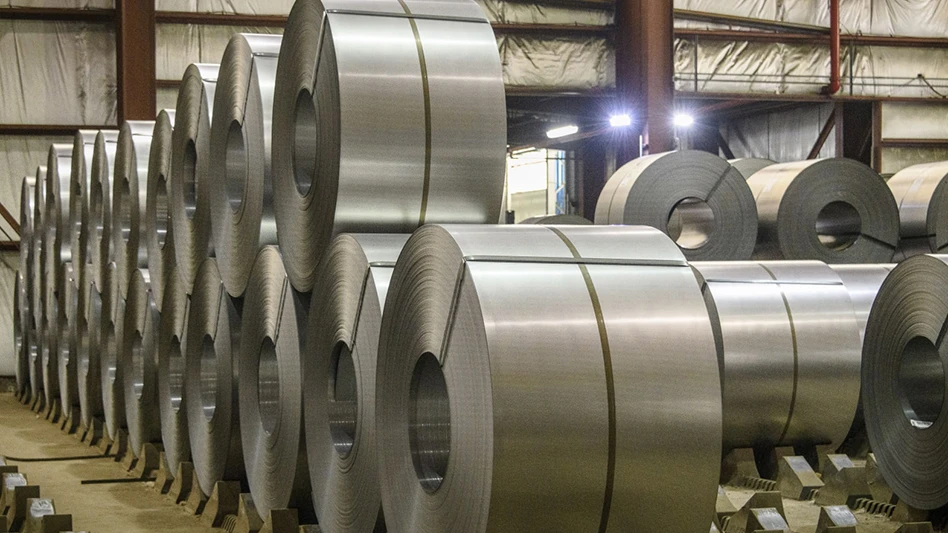 Rene Courtois, Antonio Torres and Steve Simmons |
D
espite Sierra International Machinery’s growth throughout theyears, one thing hasn’t changed: the company’s commitment to service.
"Because we were scrap dealers before we were machinery dealers, we knew how we were treated when we needed service, and we didn’t like it," Sierra International Machinery General Manager Jose Pereyra says. "Our idea is to change that."
In addition to Sierra International Machinery, the Sacco family owns and operates Sierra Recycling & Demolition. As scrap dealers, the family is intimately aware of the needs of scrap processors. Therefore, Sierra offers its customers training, preventative maintenance programs and efficient service to keep them functioning smoothly.
Sierra’s machinery business is built on small to mid-size scrap yards, which often don’t have the resources to spend on maintenance personnel.
"Small scrap dealers don’t have the ability to keep a qualified technician on staff," Chairman Ben Sacco says. "They have to depend on the people that supply them with equipment to keep them running."
To ensure that its customers’ equipment continues to run smoothly, Sierra keeps an inventory of $3 million in parts. While the equipment is built in Italy, parts delays are rare because many of the fittings and electrical components have been Americanized, John Sacco, president of Sierra International Machinery, says.
"We would not have gotten where we are if we didn’t give good service," Ben says. "We had to go above and beyond because there was always this stigma that Sierra is selling a foreign and a cheaper machine. Well, over 500 machines have been sold in the United States, and I don’t think our credibility is in question any longer."
John adds, "Today, so many people don’t even know that the machines come from Italy. Sierra is so synonymous with being here in the United States, a lot of people think the machines are made here in Bakersfield."

Sierra’s dedication to service is what caused the company to stop selling Tabarelli cranes in 1991, despite three years of successful sales. "The problem was that we couldn’t service them," John says. At the time, Sierra had to work through a network of dealerships to obtain service.
"We didn’t want to get into trouble by selling a product that we could not service. That is not the case today," he assures, "that is why we are bringing them back now."
John says admitting the truth in this case was difficult, but necessary, as the company’s reputation has been built around its service.
John says that occasional problems are inevitable with all types of equipment. "It’s how you deal with the problems that also creates lasting relationships," he says.
The proof of Sierra’s commitment to quality equipment and service is evident in its repeat customers.
"We have quite a few customers that have 10 or more machines. We do give the service and we do give the quality," John says.
Sierra’s smaller customers have also given the company repeat business, adding or upgrading their units.
Because many of Sierra’s technicians began on the scrap-processing side of the Sacco’s businesses, they can offer the type of quality training and service that comes with experience.

Explore the April 2005 Issue
Check out more from this issue and find your next story to read.
Latest from Recycling Today
- Fitch Ratings sees reasons for steel optimism in 2025
- P+PB adds new board members
- BlueScope, BHP & Rio Tinto select site for electric smelting furnace pilot plant
- Magnomer joins Canada Plastics Pact
- Out of touch with reality
- Electra names new CFO
- WM of Pennsylvania awarded RNG vehicle funding
- Nucor receives West Virginia funding assist





